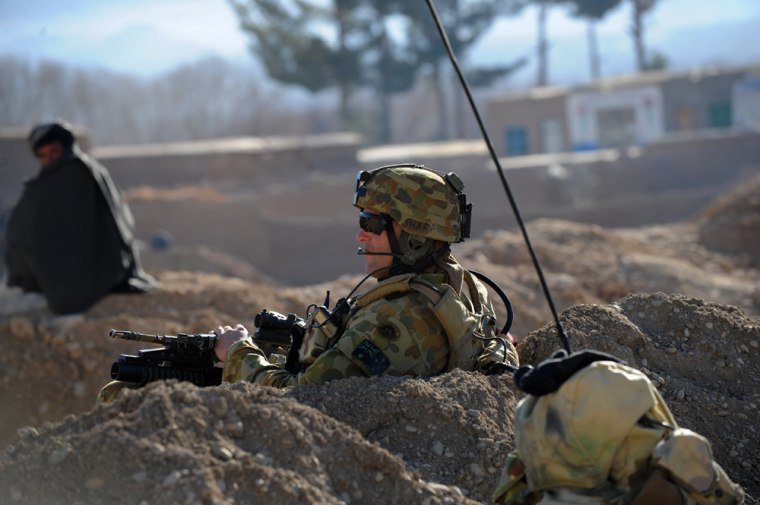Australia's military is investigating a unit of special forces soldiers accused of mutilating the corpses of one or more insurgents killed during operations in Afghanistan, Australian state television reported on Friday.
The incident, in which the hands were allegedly cut from the body of at least one of four militants killed, took place during an operation involving Afghan forces and elite Australian Defence Force (ADF) soldiers in the southeastern province of Zabul on April 28.
The hands were taken back to the main Australian base at Tirin Kot, in nearby Uruzgan province, for identification and fingerprinting, the ABC said.
An investigator from the Australian military had previously lectured a group of special forces soldiers and told them it did not matter how fingerprints were taken, and that they could cut off the hands of the dead for fingerprinting, the ABC said.
Australia's military declined to confirm details of the incident, but said in a statement sent to Reuters that an investigation was underway into "an incident of potential misconduct" involving special forces soldiers.
"Following the mission, an incident of potential misconduct was raised through the Australian Defense Force's internal command chain," the military statement said. "The ADF takes any potential occurrence of misconduct by Australian personnel very seriously."
The mutilation of insurgent corpses by members of the NATO-led coalition in Afghanistan has previously triggered complaints and unrest and in the conflict-racked nation, although often news of incidents takes days to trigger protests.
British troops were investigated in 2011 over accusations a soldier cut the fingers from a dead insurgent and kept them as trophies, while U.S. paratroops belonging to the Army's 82nd Airborne Division were in 2012 accused of posing for photos with the dismembered bodies of insurgent bombers.
Also in 2012, a U.S. Marine staff sergeant pleaded guilty to urinating on the bodies of dead insurgents and posing for pictures during operations in Helmand Province in July 2011.
Australia's military, which is in the process of withdrawing about 1,550 troops from Afghanistan, said it had informed the Afghan government of the incident, along with senior commanders of the NATO-led force. The investigation was going on and it was "inappropriate" to comment further, it said.
Australia's soldiers, the ABC said, were required to collect fingerprints and eye scans of dead Taliban fighters. But the mutilation of bodies violates internationally agrees rules of war under the Geneva Convention.
Islamic custom also requires that bodies be buried intact.
Australian special forces in Afghanistan include both elite Special Air Services soldiers and separate commando units. The military did not say which force was under investigation.
Australian troops operated under strict rules of engagement "while ensuring that the actions of Australian forces are consistent with our obligations under Australian and international law," the military said.
Prime Minister Kevin Rudd, campaigning for elections on September 7, said he would allow the investigation to run its course and that he had full confidence in the military.
Australia, a close U.S. ally, aims to have the bulk of its troops out of Afghanistan by the end of this year, ahead of a deadline for the withdrawal of most Western combat troops by the end of next year.
Related:
